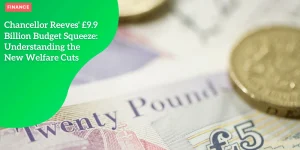IMF Framework Explained: How the UK Plans to Balance Debt and Investment Through 2029
Anúncios
Current Fiscal Challenges
The United Kingdom faces significant fiscal challenges in the coming years, driven by both its debt trajectory and revenue projections.
Let’s delve into these aspects to understand the fiscal landscape better.
Anúncios
Rising Debt Levels
The UK’s general government gross debt is projected to rise from 100% of GDP in 2023 to 108.3% by 2029.
This substantial increase emphasizes the need for strategic fiscal management to mitigate the associated risks.
Anúncios
The rising debt underscores the importance of maintaining a robust economy capable of withstanding future crises through disciplined debt control and strategic investments.
Revenue Projections
Amid these fiscal pressures, the UK has some positive news on the revenue front.
Government revenue is expected to climb to 39.3% of GDP by 2025, slightly up from this year’s 39.1%.
Compared to the G7 average of 35.3%, the UK’s revenue forecast appears stronger.
However, it falls short of the eurozone’s 46.4%, indicating room for further revenue enhancement strategies to maximize fiscal space.
Comparative Fiscal Context
It’s essential to place the UK’s fiscal figures in a broader context to fully grasp the challenges and opportunities.
- G7 Average Comparison: The UK’s projected revenue surpasses the G7 average, suggesting a relatively strong fiscal base among its peers.
- Eurozone Comparison: Yet, when compared to the eurozone’s robust revenue figures, the UK lags behind. This gap points to the potential for further improvements in revenue generation without stifling economic growth.
Strategic Fiscal Management
Managing public investments alongside rising debt is a complex balancing act.
To navigate these fiscal challenges, the UK must explore various strategies.
Enhancing revenue through VAT adjustments and other tax reforms can provide the funds necessary to meet public expenditure needs, thereby avoiding reckless borrowing.
Maintaining strong public investments is key to long-term economic resilience, but it requires a disciplined approach to fiscal management to ensure stability.
By understanding the fiscal challenges and the current projections, the UK’s policymakers can formulate strategies that balance these competing priorities.
As we move forward, it’s crucial to consider comprehensive approaches that address both immediate fiscal constraints and long-term investment needs.
This intricate balance will be critical as we explore IMF’s strategic guidelines and fiscal rule development in the following sections.

IMF’s Strategic Guidelines
Balancing Debt Control with Public Investment
Juggling the UK’s rising public debt while maintaining necessary public investments is a delicate act.
It’s more than just financial figures; it’s about ensuring a resilient and future-oriented economic strategy.
Sustainable economic growth relies on managing debt without compromising the nation’s developmental goals.
Vitor Gaspar’s Perspective
Vitor Gaspar, the IMF’s Fiscal Affairs Director, underscores the importance of controlling public debt while safeguarding critical public investments.
He approved of the ongoing debate in the UK about potential fiscal rule adjustments.
According to Gaspar, it’s essential to have fiscal rules that balance stability and growth, which can help navigate through economic volatility without compromising on crucial public investments.
This perspective highlights the need for the UK to adopt disciplined macroeconomic frameworks that can address debt concerns while bolstering public expenditure where necessary.
Pierre-Olivier Gourinchas’s Stance
Pierre-Olivier Gourinchas, IMF’s Chief Economist, emphasizes the urgency for wealthy nations like the UK to reduce their debt-to-GDP ratio.
He argues that decreasing this ratio is critical for ensuring these countries are financially prepared to tackle future economic crises.
Lowering the debt-to-GDP ratio creates fiscal space, offering flexibility to respond swiftly and efficiently to economic downturns.
Gourinchas’s approach advocates for fiscal discipline alongside strategic investments to build long-term economic resilience.
Maintaining Fiscal Discipline
Both Gaspar and Gourinchas agree that fiscal discipline should not come at the expense of public investment.
Essential investments in infrastructure and social programs must be protected.
This balanced approach ensures that the UK’s economic stability is maintained while also investing in long-term growth.
The importance of establishing well-structured fiscal rules is reiterated.
These rules must foster economic stability, reducing the risk of fiscal irresponsibility, while allowing room for necessary public investments.
Moving Forward
As the UK gears up to navigate its fiscal challenges, it’s clear that a disciplined yet forward-thinking approach is necessary.
By focusing on a strategic balance between controlling debt and maintaining public investments, the government can strive for a sustainable and resilient economic future.
The next steps involve exploring actionable strategies that can achieve this balance.
Fiscal Rule Development
Developing supportive and robust fiscal rules is crucial for maintaining economic stability while allowing for necessary public investments.
As the IMF notes, public investments are important for long-term economic health but should not lead to reckless borrowing or careless fiscal management. The UK is currently debating potential adjustments to its fiscal rules, an effort welcomed by the IMF.
Welcoming the Debate on Fiscal Rules
The ongoing discussion in the UK about fiscal rule adjustments has gained the approval of the IMF.
Finance Minister Rachel Reeves is preparing for her first budget, and this scrutiny opens doors for potential borrowing adjustments.
These adjustments could enable the UK to invest more heavily in public projects without sacrificing economic stability.
The goal is to design fiscal rules that foster stability and minimize the risk of fiscal irresponsibility while permitting essential public investments.
Importance of Crisis Response Capabilities
Maintaining strong crisis response capabilities is another key focus area emphasized by the IMF.
Chief Economist Pierre-Olivier Gourinchas highlights the importance of reducing the debt-to-GDP ratio to ensure sufficient fiscal space for responding effectively to economic crises.
In a volatile global economic environment, the ability to swiftly mobilize resources during downturns is indispensable.
Developing Supportive Fiscal Rules
The UK needs to establish fiscal rules that promote economic stability and permit essential public investments.
This dialogue is crucial as it impacts borrowing practices and guides economic decisions during uncertain times.
Such rules would protect public investment within a sound macroeconomic framework, ensuring the UK is well-prepared for potential economic crises.
By incorporating strategies like raising tax revenues, balancing daily spending, and devising robust fiscal rules, the UK aims to build a more resilient economy.
This multifaceted approach is essential for managing rising debts while securing the nation’s investment in critical areas for long-term prosperity.
The trajectory of the UK’s gross government debt—from 100% of GDP in 2023 to a projected 108.3% by 2029—emphasizes the importance of careful fiscal management and strategic investments to ensure that rising debt does not hinder future economic stability.
Maintaining this balance is vital for long-term economic resilience, which will help the UK respond effectively to future crises while continuing to grow and prosper.
Understanding these dynamics is crucial as the UK develops and implements its fiscal strategies.
The interconnectedness of revenue, debt, and investment highlights the complex landscape that policymakers must navigate.
Moving forward, the focus will be on finding actionable fiscal strategies to maintain this balance.
Revenue Enhancement Strategies
Addressing VAT Exemptions to Boost Tax Revenue
One critical approach to increasing government revenue is reevaluating VAT exemptions.
By addressing these exemptions, the UK can significantly boost its tax intake.
The IMF has indicated that even a marginal reduction in exemptions can lead to substantial revenue gains, which can then be funneled into essential public services and investments.
This strategy would provide a vital financial cushion without hampering overall economic growth.
Focus on Increasing Government Revenue Without Hampering Economic Growth
A key priority remains enhancing government revenue while ensuring that economic growth is not stifled.
The projected increase in general government revenue to 39.3% of GDP by 2025 is a positive step and surpasses the G7 average of 35.3%.
However, it is crucial that this revenue enhancement does not deter economic activities.
Removing or reducing VAT exemptions must be done thoughtfully to avoid any adverse impact on consumer spending and business operations.
Balancing Daily Operational Spending with Public Investment Needs
Balancing day-to-day spending with public investment needs is another essential component of the strategy.
Finance Minister Rachel Reeves aims to ensure daily government operations are adequately funded without compromising on long-term investments.
This balancing act includes making prudent budgetary decisions that cater to immediate operational costs while safeguarding allocations for infrastructure and social programs.
To maintain public trust and drive economic stability, it is imperative to find that sweet spot between daily expenses and future-oriented investments.
Careful consideration of expenditure ensures that essential services are delivered without deferring critical projects that promise long-term benefits.
By integrating these strategies, the UK looks to build a more resilient and sustainable economy, ready to tackle future challenges while fostering growth and stability.
The focus will shift towards laying down robust fiscal rules ensuring economic stability and growth, paving the way for enduring prosperity.
Future Economic Resilience
Building Crisis Response Capabilities
To achieve future economic resilience, the UK must focus on reducing its debt-to-GDP ratio.
This is essential to build a robust crisis response mechanism.
Lowering the debt levels would ensure that the nation can mobilize resources quickly during economic downturns.
By maintaining a disciplined approach to debt management, the UK can create fiscal space that allows for flexibility in times of crisis.
This strategic financial positioning is crucial for responding effectively to unexpected economic shocks, ensuring the UK’s economic stability.
Maintaining Investment in Critical Infrastructure and Social Programs
Despite the need to control debt, it is equally important to continue investing in critical infrastructure and social programs.
These investments are key to fostering long-term economic growth and improving the quality of life for citizens.
The UK must prioritize spending on essential sectors such as healthcare, education, and transportation, which yield significant economic and social benefits.
The government’s commitment to these investments will help build a strong foundation for sustainable development, even while managing fiscal responsibilities prudently.
Establishing Long-term Economic Sustainability
The overarching goal is to establish a balanced fiscal approach that promotes long-term economic sustainability.
This requires a delicate balance between raising revenues and controlling expenditures.
One strategy involves addressing VAT exemptions to increase tax revenues without stifacing economic growth.
Enhancing revenue collection through targeted tax reforms can provide the necessary funds to support public investment.
Finally, ensuring that daily operational spending does not encroach on funds for critical investments will help maintain economic stability and public confidence.
By adopting well-structured fiscal rules and maintaining a disciplined approach to debt management, the UK can build a resilient economy capable of withstanding future challenges.
This balanced fiscal strategy will ensure that the nation remains on a sustainable path, fostering growth and prosperity.
Transitioning to the next focus, understanding the interconnectedness of debt control, public investment, and fiscal stability will be pivotal.






